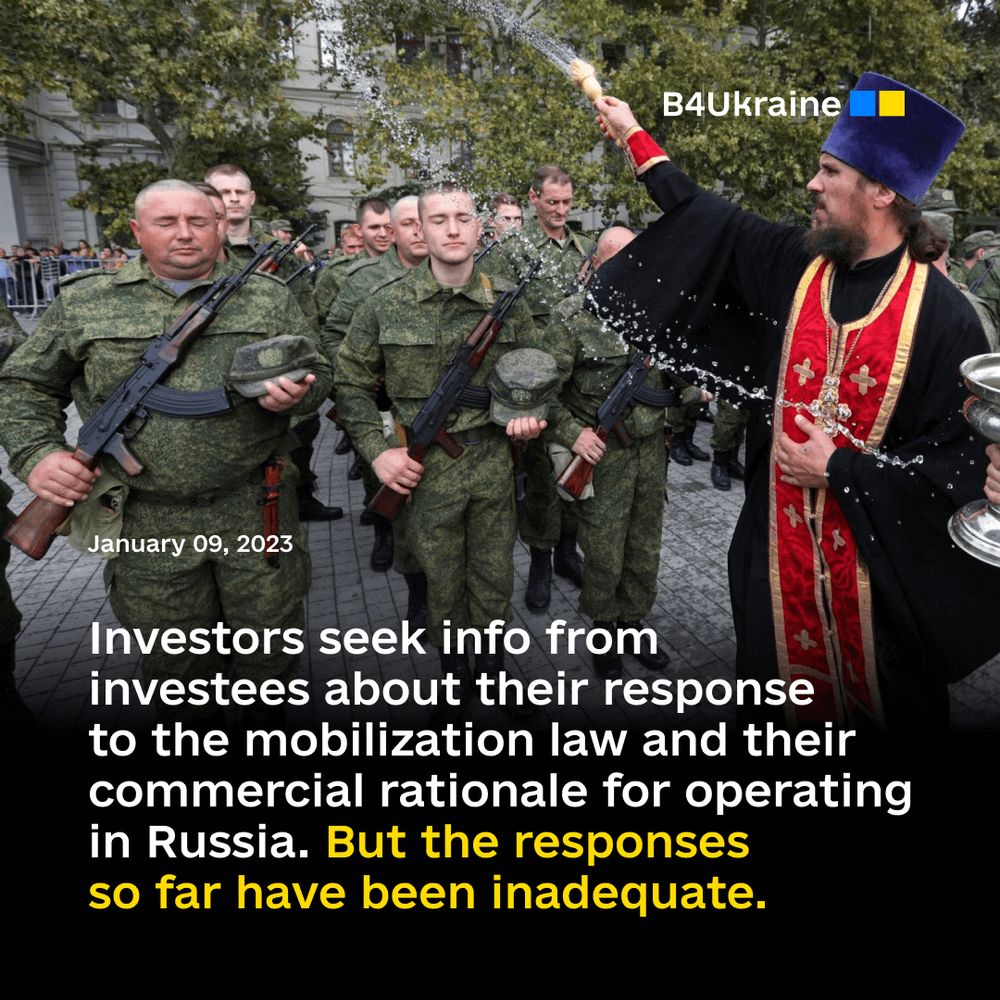
According to the Heartland Initiative, a US-based non-profit focused on the rights of people in conflict-affected and high-risk areas, investors have been seeking information from investee firms about their response to the mobilization law in Russia and their continued commercial rationale for operating in Russia. But the responses so far have been inadequate.
Heartland Initiative Executive Director and the B4Ukraine Steering Committee member Rich Stazinski says the invasion of Ukraine exposed the shortcomings of human rights due diligence (HRDD) processes of asset owners, asset managers and companies, when it comes to conflict. Stazinski argues the invasion was “wholly predictable”, and its consequences will pose complex and wide-ranging challenges in 2023 and beyond.
“This was a moment of great awakening. The question is: how will investors and companies rethink their policies and practices? And will they apply precedents elsewhere? This is deeply challenging as many investors were not as deeply invested in Russia as they are in China, for example.”
Sam Jones, President of the Heartland Initiative, says investors have largely been piecemeal and inefficient in monitoring and managing their exposure to human rights abuses in high-risk areas, characterising their approach as conflict “whack-a-mole”.
“While there is excellent guidance on heightened human rights due diligence for individual companies operating in a conflict-affected or high-risk area, as called for by the UNGPs, there’s almost nothing available for investors that may have thousands of companies in their portfolios,” he said to ESG monitor.
Officially adopted by the UN in 2011, the Guiding Principles on Business and Human Rights (UNGPs) are recognised as the standard for the private sector to follow and is increasingly incorporated into domestic legislation, especially in Europe. But as Jones suggests, many investors need more specific guidance, especially with regard to the heightened due diligence required in conflict zones, while some still lack the basic foundation of a formal human rights policy.
It’s still very hard for investors to look through long and complex supply chains, admits Phil Bloomer, Executive Director at Business and Human Rights Resource Centre, especially when they extend into authoritarian states, conflict zones and other high-risk environments. “Investors have to be far more active in their engagement, insisting that companies can demonstrate the heightened due diligence demanded by the UNGPs,” he says.
Bloomer says the pressure is increasing on investors to engage more forcefully with firms where there is evidence of “salient and severe” human rights risks, such as forced labour, which he expects to spread in 2023.
In conflict-affected contexts, the UN Guiding Principles on Business and Human Rights, OECD Guidelines for Multinational Enterprises, and the UNDP Guidance on Human Rights Due Diligence for Business in Conflict-Affected Contexts call on companies to engage in heightened human rights due diligence with a conflict-sensitive lens to understand how their operations cause, contribute to, or are linked to impacts on rights-holders and the conflict itself. To carry out heightened HRDD, we call on companies to take the following steps.